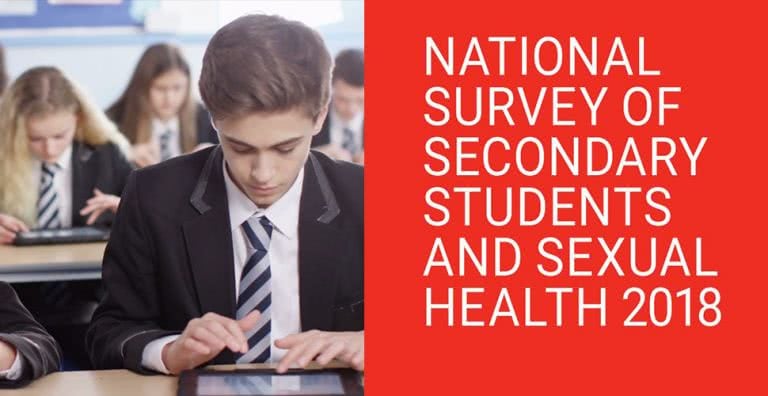The results from 2018’s National Survey of Secondary Students and Sexual Health have just been revealed, with some rather interesting stats.
The survey, conducted by Victoria’s La Trobe University, highlighted the concerning fact that above one third of Australian students had engaged in sexting, in the two months prior to the survey being conducted.
Perhaps more concerning, though, is the prevalence of students with little to no knowledge around STIs and sexual health. The survey confirms that knowledge around hepatitis is at an all time low.
“Viral hepatitis knowledge was generally poor, with students scoring an average of 31% correct across all
questions. More than half of students did not know if they had been vaccinated against hepatitis A (57.3%)
or B (52.0%), and most believed they were at low or no risk for hepatitis B (96.4%) and C (96.7%).”
An alarming trend of non-use of condoms has been identified. “The number of students who believed that their peers were using condoms (68.2%) was higher than the actual number who reported using them in the last year (62.2%) and at their last sexual encounter (56.9%).”
As expected, it’s been discovered that from Year 10 to 11, and Year 11 to 12, the levels of sexual activity have spiked. However, thankfully, pressure to engage in sexual activity isn’t much of a concern for these students.
Love Music?
Get your daily dose of metal, rock, indie, pop, and everything else in between.
“Not yet sexually active students (53.4%) didn’t feel regretful about their decision to not have sex yet (88.9%),
weren’t feeling much pressure from partners or peers to have sex (91.2%), wanted to be “in love” when they did
(78.2%), and believed they were likely to do so before marriage (73.7%), but not in the next year (51.1%).”
The survey’s results highlighted a rather low level of participants currently in a relationship. For males, 33.6% responded ‘yes’ to being in a relationship. 41.6% of females responded ‘yes’ to be in a relationship, and 36.9% of transgender, or gender diverse participants stating they’re currently in a relationship.
Over 52% of the male year 10 students surveyed reported having touched a partner’s genitals, and that same cohort had 9.6% responding ‘yes’ to having participated in anal sex.
Unsurprisingly, masturbation levels across all three year levels surveyed [10, 11, 12], were high. On the especially high ends of the scale were males in Year 12 – where 97.9% have engaged in self-genital touching, but the levels for females, and TGD participants were much lower.
These survey results come after news broke last year that HIV diagnoses are on the rise.


































